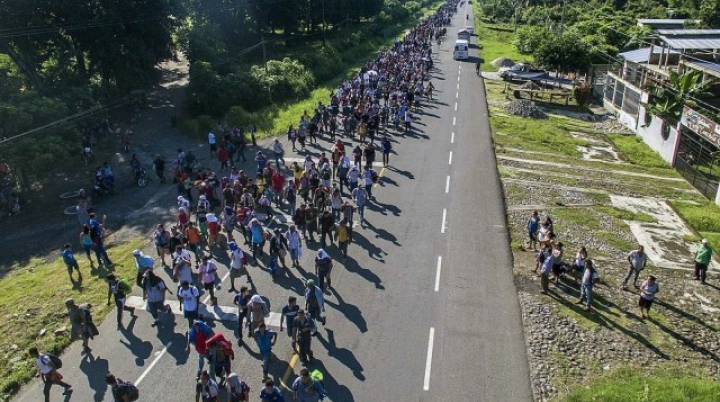COMUNICADOS
New U.S. Regulation Violates the Rights of People in Need of International Protection
We condemn this serious setback that adds to a pattern which seeks to contain migration by ignoring international obligations and violates the rights of people in need of international protection.
San José, July 17, 2019. – Due to the U.S. government´s decision to adopt a new regulation that restricts asylum, at the Center for Justice and International Law (CEJIL), the Foundation for Justice and the Democratic State of Law and the Washington Office for Latin American Affairs (WOLA), we condemn this serious setback that adds to a pattern which seeks to contain migration by ignoring international obligations and violates the rights of people in need of international protection.
The new regulation went into effect after its publication yesterday. It establishes that any person crossing or attempting to cross the southern border of the U.S., after having traveled through a third country without having requested international protection, is ineligible for asylum in the United States.
This provision includes limited exceptions: persons who have been denied protection by a third country; those who have been victims of trafficking; or that they have traveled only by States that have not subscribed to the instruments of the international law of refugees.
All countries in Central America, along with Mexico, have ratified these instruments, which implies that people who, between leaving their country of origin and arriving at the border of the United States, have passed through any country from Panama to Mexico. With this new regulation, they would now be ineligible to receive asylum in the United States.
This restriction on the availability of international protection in the United States contravenes the standards of international law and leaves thousands of people in a situation of vulnerability.
The United Nations High Commissioner for Refugees (UNHCR) has established that the State where the person seeking refuge arrives at is the primary responsible for their protection. In that sense, protection should not be denied only because it can be requested in another State. For its part, the Inter-American Commission on Human Rights (IACHR) has established that “as long as the refugee laws of the third country contain legal impediments for a given applicant to request asylum, the Member State may not expel the applicant to the third country.”
The new U.S. regulation does not contemplate any measure to guarantee the right of applicants seeking international protection. In addition, it ignores the impediments in legal frameworks, the conditions of institutions, along with the insecurity in the other countries of the region that threaten life and integrity, which impede effective protection.
In this context, closing the door to tens of thousands of people, many who are fleeing entities of persecution with transnational reach in multiple countries of the region, is tantamount to preventing international protection.
We remind the United States that the principle of non-refoulement is a peremptory norm of international law and, therefore, of mandatory compliance, and that the return of an applicant to a third country may be contrary to this principle.
Given the decision of the United States, the signing organizations demand that the State annul this new regulation because it is regressive and contrary to human rights standards. We urge the United States to guarantee the protection of refugees, regardless of how they arrive or present themselves to US territory, in a manner consistent with their international obligations.
Lastly, we call on the other countries of the region and the international community to refrain from taking measures that undermine the international protection and human rights of persons in need of protection.
Signing Organizations
Center for Justice and International Law (CEJIL)
Fundación para la Justicia y el Estado Democrático de Derecho (FJEDD)
Washington Office on Latin America (WOLA)
